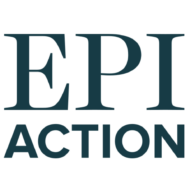My 2017 book, The Color of Law, showed that “de facto,” accidental, neighborhood segregation is a myth; in truth, government purposely enforced it, creating racial inequality in wealth, education, employment, health, and criminal justice. Readers asked, “What can we do about it now?” So in 2023, Leah Rothstein and I published a sequel, Just Action, that showed how community groups could remedy this unconstitutional system. Intended for normal times, its suggestions for direct action have become urgent when Trump’s unlawful policies in housing and other sectors call for resistance. Just Action and follow-up articles describe how to create diverse committees that can embrace all who seek to preserve democracy.
Trump has taken full control of federal power—executive, legislative, and judicial—to:
- destroy our already inadequate safety net;
- gut health and environmental protections;
- promote racial and ethnic inequality;
- threaten the security of immigrants and their citizen children;
- suppress free speech and independent journalism; and
- prohibit schools from teaching historical truth.
He’s now moved to rig elections in 2026 and 2028, so will no longer depend on popular support. Marches, rallies, and media outrage remain necessary but insufficient. We are now called upon to do more than protest, but to act. What John Lewis called “good trouble, necessary trouble” becomes essential. As Trump “floods the zone” with so many illegal policies that we can’t keep up, so should resistance emerge in many sectors and communities to throw his authoritarianism off balance.
Most resistance will be law-abiding, some with civil disobedience. A decent society won’t be restored from Washington. A movement with a strong popular base can only begin with committees that pursue opportunities in their own neighborhoods, towns, and cities.
Here are two from Just Action, with details and many more examples in the book:
- Regional housing centers have insufficient resources to uncover much discrimination and Trump has made it worse by defunding them. Volunteers can do the uncovering, then bypass the Justice Department by taking cases directly to court. They can campaign to force apartment owners and realtors who discriminate to commit to reform and organize boycotts of those who refuse.
- The administration no longer deems policies unlawful if they unintentionally but needlessly harm historically disadvantaged groups. For example, property assessments usually create higher tax rates for homeowners and landlords who live in lower-income areas. Community groups can campaign to make county assessment practices fair.
Committees with actions like these will develop experience that builds toward resistance in other sectors and a national movement.
After Just Action’s publication, Washington State challenged the federal refusal to remedy housing discrimination. Volunteers documented 80,000 home deeds that banned residents who weren’t considered “white,” causing large wealth gaps between descendants of white people and others. A statewide organizing campaign won a state subsidy for home purchases by members of the previously excluded groups; 300 households have now received assistance, averaging over $100,000 each. Leah Rothstein has described how the reform was won. Groups elsewhere can mobilize for similar victories.
- The Justice Department has cancelled settlements that required police to end abusive practices. Local groups can organize “blue ribbon” commissions to adopt the agreements and then campaign to grant them legal power to monitor and enforce compliance.
- The administration has threatened public schools that teach “divisive” history, such as slaves’ suffering, Native Americans’ extermination, Japanese Americans’ World War II internment, or racial inequality’s origins. Local committees can organize support for teachers told to avoid these topics and for school board candidates who have pledged to protect truth in curriculum.
- The Greyhound bus company will not permit warrantless or suspicionless immigration arrests on buses or in its stations. The Los Angeles Dodgers prohibits ICE from entering its parking lots without a warrant. Retail stores, markets, and restaurants should post signs announcing a similar prohibition. Customers can organize to ensure that it is advertised and enforced.
Campaigning for democratic practices starts by inviting friends and associates to plan. But we mostly interact only with people like ourselves. That’s no formula for successful resistance. Just Action begins by describing those who reached beyond their bubbles. We report on a Chicago artist who photographed pairs of nearly identical homes, one in a North Side white area, the other in a South Side Black one. She then invited residents to meet their “map twins.” Many agreed and were astonished by how much they had in common. We also recount six churches in Winston-Salem—three white and three Black—whose ministers created an interracial discussion and social group of 40 parishioners, divided equally by race. It eventually took direct action, successfully campaigning for a police review board and school curriculum reform.
Leah Rothstein reported recently on a project that organizes monthly dinner meetings of 25 residents from Marin City, California—with a mostly Black population—and 25 from its predominantly white suburbs. Reforms resulted in education, policing, health care, the arts, and housing. They model what diverse resistance cells can achieve.
Indivisible, the organization that led “Hands Off” and “No Kings” rallies this year, has concluded that while vocal opposition to Trump remains necessary, successful resistance must evolve to direct action. Indivisible is now conducting online training to teach and inspire local committees to undertake acts of resistance. You can watch previous sessions and register for subsequent ones here. These should offer more examples of direct actions you could take.
Please click here to share other acts of resistance, so Leah and I can promote them.

